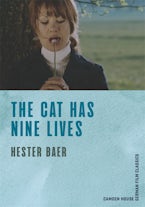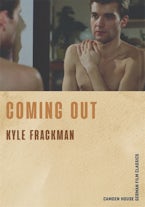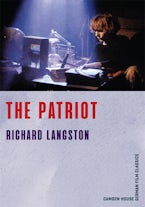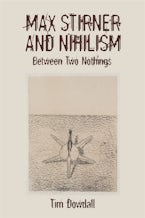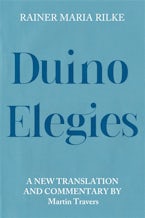
Title Details
318 Pages
22.8 x 15.2 cm
29 b/w illus.
Series: Studies in German Literature Linguistics and Culture
Series Vol. Number:
1
Imprint: Camden House
Expressionist Film -- New Perspectives
- Description
- Reviews
New essays by leading scholars giving a new picture of the variety of German expressionist cinema.
This volume of fresh essays by leading scholars develops a new approach to expressionist film. For nearly half a century Siegfried Kracauer's From Caligari to Hitler and Lotte Eisner's The Haunted Screen have shapedthe understanding of the cinema of this period. However, fifty years on, there is a growing awareness that a new account is overdue. This attempt to rewrite the story of expressionist cinema begins with a fundamentally new interpretation of Dr. Caligari, and together with fresh views of other expressionist classics, offers new perspectives on important alternative film styles and genres that emerged in films by such eminent directors as Ernst Lubitsch, Joe May, Fritz Lang, Karl Grune, F. W. Murnau, and E. A. Dupont. In pursuing such variety, the book strives for a picture of the cinema in the early years of Weimar that in thematic as well as stylistic terms reflects the vibrant, multifaceted cultural and political developments of the period. The book is a joint venture of the Centre for European Film Studies at the University of Edinburgh, the Institute for Film Studies at the University of Mainz, and the German Film Museum in Frankfurt.
The late Dietrich Scheunemann was Professor of German at the University of Edinburgh and wrote and edited several books on German literature and on film and media.
This volume of fresh essays by leading scholars develops a new approach to expressionist film. For nearly half a century Siegfried Kracauer's From Caligari to Hitler and Lotte Eisner's The Haunted Screen have shapedthe understanding of the cinema of this period. However, fifty years on, there is a growing awareness that a new account is overdue. This attempt to rewrite the story of expressionist cinema begins with a fundamentally new interpretation of Dr. Caligari, and together with fresh views of other expressionist classics, offers new perspectives on important alternative film styles and genres that emerged in films by such eminent directors as Ernst Lubitsch, Joe May, Fritz Lang, Karl Grune, F. W. Murnau, and E. A. Dupont. In pursuing such variety, the book strives for a picture of the cinema in the early years of Weimar that in thematic as well as stylistic terms reflects the vibrant, multifaceted cultural and political developments of the period. The book is a joint venture of the Centre for European Film Studies at the University of Edinburgh, the Institute for Film Studies at the University of Mainz, and the German Film Museum in Frankfurt.
The late Dietrich Scheunemann was Professor of German at the University of Edinburgh and wrote and edited several books on German literature and on film and media.
"With a nod to the pioneering work of Siegfried Kracauer and Lotte Eisner, [the book] proposes to overcome the reductive tendencies of their scholarship with a historiography that emphasizes complex and asynchronous historical developments...." GERMAN QUARTERLY
"Among the collection's greatest strengths are the reassessment of the maddeningly elusive category of 'expressionist' film - the editor should be commended for his insistence on giving more nuance and specificity to the term - and the vibrant mix of genre discussions from horror and fantasy and the so-called 'street films' to early historical dramas and the avant-garde film." MONATSHEFTE
Paperback
9781571133502
September 2006
$38.95 / £30.99
Ebook (EPDF)
9781571136121
June 2003
£24.99 / $29.95
Title Details
318 Pages
2.28 x 1.52 cm
29 b/w illus.
Series: Studies in German Literature Linguistics and Culture
Series Vol. Number:
1
Imprint: Camden House








